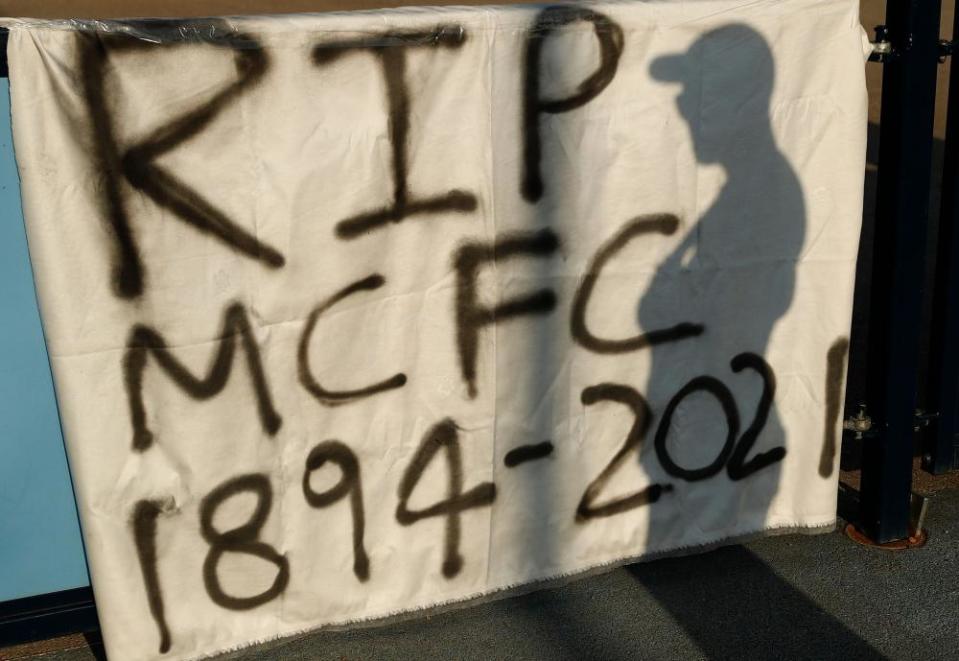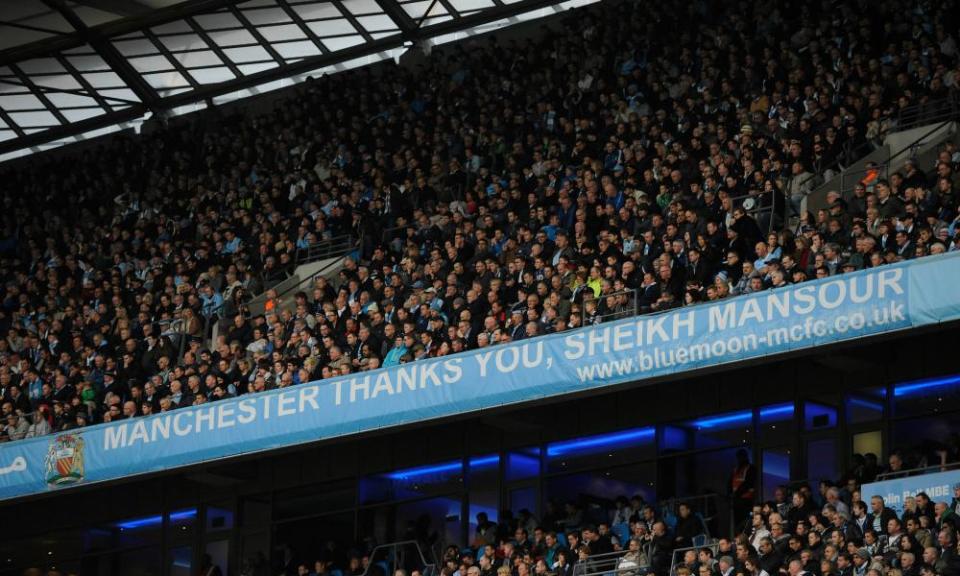Supporters of the rich six can now see the price we’ve paid for success

I’m tapping out a tweet to my football club, Manchester City, trying to make a case for why they shouldn’t join the Super League. But nothing’s coming out except for abuse. A fuck at the start, one at the end and another in the middle for good luck. A three-word sentence. I delete them, and start anew. The same happens again. Pure senseless abuse. Well fair enough, I’m in an abusive relationship, and there comes a point when you say enough is enough, it’s time for the abused to fight back.
But I’ve been here before. Fourteen years ago I wrote a column saying I was quitting City because I couldn’t cope with being bankrolled by Thaksin Shinawatra, who had presided over “very serious human rights violations” in Thailand according to Amnesty. I was weak, though. A couple of weeks later I wrote another piece saying I was going back to City, apologised for my lack of moral backbone, and would rather give up the column than City.
Related: Brutal European Super League breakaway snaps limited bonds of solidarity
Pathetic, I know. But that’s the lot of football fans who support the big clubs in England. We’re not only in abusive relationships, we’re addicted to the abuse. Sure enough we got taken over by a far richer backer linked to a dodgy human rights record – the Abu Dhabi United Group, basically the United Arab Emirates. In its 2017-18 report Amnesty condemned the UAE for unfair trials, lack of freedom of expression, a failure to investigate allegations of torture, discrimination against women and the abuse of migrant workers. We should have known not to trust them – they even had United in their name. Was all this enough to turn me against my club? Not a chance. Football fandom and moral purity have rarely been easy bedfellows.
These sportswashers extraordinaire were as good as their word. They invested billions in City, turned a club that hadn’t won a trophy in 35 years into serial champions, and created a global brand for themselves in the process. They told us they loved us, they said we meant the world to them, they gave us our fix: four Premier League titles, two FA Cups, five League Cups. They bought success – a load for us, even more for them. Before long, they ran clubs all over the world – New York City FC, Melbourne City FC, Mumbai City FC, Montevideo City Torque, oh yes and Manchester City. We were now one of a franchise. But it didn’t matter. We’d won an unprecedented domestic clean-sweep, we became the first (and only) team to win 100 points in a Premier League season, we had arguably the best manager in the world, we were playing dream football.

As for moral compromise, well who isn’t compromised we said. City fans were compromised the day they broke the transfer record by signing the attacking midfielder Steve Daley for £1.4m in 1979 (four goals in 48 league games, if you must know). All the top clubs were compromised when they signed up to the Premier League, as were those of us who bought into Sky TV and BT because there was no other way to get our fix. Sure, a few United fans showed their mettle by leaving Manchester United and forming FC United. But there were tens of thousands waiting to buy up their season tickets. And even if there weren’t there was global audience desperate to watch the big Premier League teams on the telly and buy up their replica shirts. And then the pandemic came, and there were no fans in the ground, and it didn’t really matter because the replica shirts were still being bought, TV money was still coming in, sportswashers extraordinaire were still soaping their kingdom’s dirty deeds in tales of football derring-do.
Did we complain about our owners? Of course, we didn’t. We just dreamed of ever greater success. So when they came for those too poor to watch the game, we might have muttered a few dissenting words, and then went on enjoying the glory days. When those with a moral conscience gave up on the club, we said they were supercilious prigs and we were better off without them. When socialists complained that bought success wasn’t true success, we dismissed them as killjoys. It just meant there were more tickets left for us.
Related: European Super League: backlash builds against breakaway plan – live!
And finally on Sunday the club came for us. City, along with the five others who make up the so-called big six (or more accurately, the rich six) told us in no uncertain terms what we’d known for ages but had not been prepared to admit – they couldn’t give two hoots about us. You want to stay in the Premier League, you want real competition, you want to subsidise the poorer clubs, you want to be able to go to see your team play away at Norwich or Brighton, they taunted, well stuff the lot of you, we no longer need withered “legacy fans” because there are millions of younger, fresher, richer suckers all over the world who will invest in our product.
Should we feel sorry for ourselves? Not really. We had the opportunity to vote with our feet, our mouths and our placards, but we didn’t. Success was too alluring. Should we fans of the big six walk away from our clubs? Yes. Will we? Who am I to say. There were plenty of times when I could have and should have, but didn’t. And the last decade on the pitch has been wonderful. But supporters can now see the price we’ve paid for success. Once we made our clubs what they were, we paid the players wages; now we’re an irrelevance and an irritant.
To give the club its due, when Manchester City issued a statement on Sunday night it did acknowledge the role of the fans. “The club’s inclusion in the Super League will be an immediate focus for its continued engagement with supporters and other important stakeholders.” If I could begin to make sense of the sentence, I might well take offence at it.
But the meaning was far more obvious in the previous paragraph when it quoted the despised Manchester United co-chairman and vice-chairman of the Super League, Joel Glazer, saying: “By bringing together the world’s greatest clubs and players to play each other throughout the season, the Super League will open a new chapter for European football, ensuring world-class competition and facilities, and increased financial support for the wider football pyramid.”
Yes we can quibble with his logic – the pyramid will no longer exist once you’ve lopped off its top, and there can be no competition in a league where you can’t be relegated. But the essence of what City is saying to its fans could not be clearer – Joel Glazer and his merchants of greed mean far more to us than you relics will ever do.
At the Etihad Stadium on Monday, a handwritten banner was placed over the entrance to the Colin Bell stand: “127 years destroyed by greed”, it said in capital letters. A crowd gathered in front of it, heads bowed as if in mourning.

 Yahoo Sport
Yahoo Sport 




































